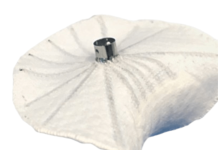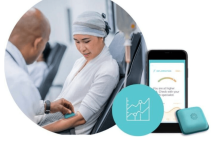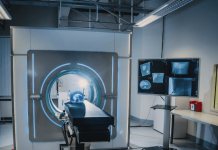The U.S. Food and Drug Administration has granted Distalmotion De Novo approval to market its Dexter Surgical Robot for adult inguinal hernia repair.
Distalmotion claims the authorisation will help expand access to and improve care with robotic-assisted surgery in the hospital outpatient and ambulatory surgery centers (ASCs) where more than 90% of inguinal hernia repairs are currently performed in the United States. With more than 1,300 patients successfully treated in Europe, Distalmotion’s experience has been instrumental in bringing Dexter to the U.S. market.
“We’re excited to bring Dexter to the U.S. market and empower healthcare facilities with a robotic solution that addresses the barriers of cost, space, and workflow disruption,” Distalmotion CEO Greg Roche said. “Our goal is to enhance existing practices with robotics that support—not disrupt—the way surgical teams operate.”
Related: Ultromics obtains FDA clearance for Cardiac Amyloidosis screening device
Distalmotion is focused on developing a robotic platform for high-volume procedures and bringing the benefits of robotic-assisted surgery to outpatient settings where demand for cost-effective and efficient solutions continue to grow (7% ASC market compound annual growth rate).ii Dexter’s mobile design and its small form factor make it particularly well-suited to these environments, allowing hospitals and ASCs to optimise resources while still accessing the latest technologies and best-in-class surgical tools.
“Inguinal hernia repair is an excellent first indication for Dexter,” stated William Hope, M.D., associate professor of Surgery, UNC Chapel Hill, and general surgery residence program director at New Hanover Regional Medical Center (Novant Health). “Access to robots for these procedures has historically been a challenge. Dexter’s design will undoubtedly enable more patients to benefit from robotic assisted surgery.”
Dexter seamlessly integrates into existing operating workflows and is fully compatible with current operating room equipment, protecting hospitals’ existing investments. Additionally, its single-use instruments remove the complexities of reprocessing, further enhancing workflow efficiency. Dexter’s design enables direct and quick access to the patient from the sterile surgeon console, allowing surgeons the flexibility to choose the best technique for each step of the procedure. Dexter is designed to be the “surgeon’s robot” that provides the physician complete control of the procedure to optimise patient outcomes.
“Dexter provides an open concept and the ability to transition from console to bedside seamlessly, resulting in a system that is more ergonomic and operatively efficient than current generation platforms,” commented Garth Jacobsen, M.D., professor of Surgery and director of Hernia Surgery at the University of California-San Diego (UCSD). “As a surgeon, I want the ability to use the tools and techniques that enable me to provide the best care to my patients. That’s what Dexter delivers.”
Dexter is designed to deliver the benefits of robotics to more hospitals, hospital outpatient departments, and ambulatory surgical centers by being simple and straightforward to use, and more accessible as a modular, small format, and open system.
As an open system, Dexter is designed to work natively with third party 3D imaging systems, energy devices, vessel sealers and other laparoscopic devices. It has a suite of fully wristed single use instruments providing the user with dexterity, precision of movement, reliable instrument performance, and lower reprocessing requirements.
“Dexter delivers exceptional performance and without limitations. Its open platform allows flexibility, whether in terms of the surgeon console or the option to choose your preferred vision system, stapling, and advanced energy,” noted Ryan Broderick, M.D., associate professor of Surgery at UCSD. “We are seeing the continued shift of procedures moving to the outpatient setting. The footprint and cost, both less than other solutions, enable Dexter to be the ideal robot for outpatient sites of care and those patients. Dexter is the solution for everyday surgeries and that’s what the market needs.”
Distalmotion is a medical device company founded and based in Lausanne, Switzerland that is developing robotic surgical technology. The firm is striving to remove the complexities of robotic surgery to establish a new care standard where all patients in general, gynecologic, and urologic surgery have access to best-in-class minimally invasive care.




